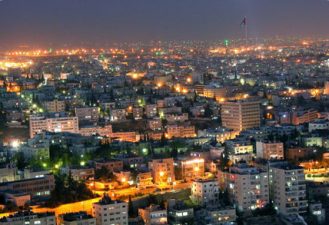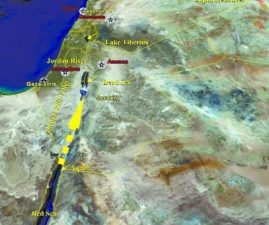 In Tunisia last week, Islamic ministers meet to set a precedent on tackling water scarcity in home countries.
In Tunisia last week, Islamic ministers meet to set a precedent on tackling water scarcity in home countries.
In the Middle East and across the Muslim world, water scarcity is becoming one of the most pressing issues related to climate change- but what is actually been done to tackle these problems?
Last week, the conference of Islamic environment ministers in Tunisia ended with the Tunisian president (above) urging the region to look for the most effective ways to deal with water scarcity. President Zine El Abidine Ben Ali explained that water scarcity “constitutes a source of deep concern for most Muslim countries given their water poverty, imbalanced demographic growth, arbitrary exploitation of water resources, aggravated pollution, and severe and frequent climate changes, together with associated problems of drought.” He added that resolving this issues was one of the ‘most important duties’ of our time.
Growing Awareness of Water Issues
The Arab Forum for Environment and Development (AFED) conference planned for early November will also present a report highlighting the need for more sustainable management of water. According to AFED, a ground-breaking report prepared by Dr. Mohammed El-Ashry will show how the Arab region is amongst the most water scarce in the world and go on to call for urgent policy reforms. From these and other initiatives, it seems that the region is clear about the need to better conserve water but what schemes are actually being carried out to tackle the issues?
Green Prophet recently reported the Egyptian government’s failure to prevent oil spills and toxic pollution from being dumped in the Nile. Water quality is so poor that a report found that up to 17,000 children die every year from it and also that four times as many people die of kidney failure in Egypt than anywhere else in the world. The AFED report also found that the region’s per capita share of water is declining from 1000 (already below the level of water scarcity) and could fall to below 500 cubic metres as early as 2015. To help you put these figures into perspective- the world average is 6500 cubic metres.
Learning To Use Water Efficiently
In response to these problems, AFED is releasing a ‘Water Efficiency Manual’ which will include practical advice to help the region use water efficiently in homes, offices and industry. It is the first of its kind to be developed by specialists specifically for the Arab region and will hopefully lead to constructive action on the issue. The Tunisian president Ben Ali also called for the establishment of an ‘Islamic Water Council’- a coordination mechanism which will operate within the Organisation of Islamic Conference to enhance local programmes’ fight against desertification and other water related concerns.
Whilst these actions may not appear to be hugely ambitious projects in comparison to the expensive desalination projects launched by Egypt and Kuwait, the reality is that these are working towards long-term solutions. Desalination does provide clean water but it is a quick fix with harmful environmental side effects which doesn’t tackle the root causes of water scarcity or try to change people’s water habits. If the Muslim world is serious about dealing with water scarcity than it will need do both- change people’s attitudes and embrace technologies which provide clean water for their populations.
For More on Water Issues See:
Perpetrators Flee The Scene Of Two Nile River Oil Spills
Nile Water Kills 17,000 Egyptian Children Each Year
Ecowash M.E.: How To Wash Your Car In A Water-Parched Desert
Top image via Wikipedia



